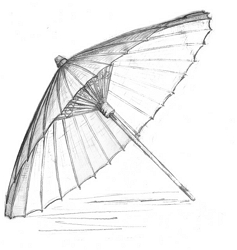 One thing I had to learn starting from the age when I could first speak was to address people by appropriate titles according to their age. That applies for every child who grew up in Burma (Myanmar). Imagine a 3-year-old having to learn the skills to call someone by the right title. The thing is that to be able to address them appropriately, you have to be able to gauge their age. If you get it wrong, the other person might get offended.
One thing I had to learn starting from the age when I could first speak was to address people by appropriate titles according to their age. That applies for every child who grew up in Burma (Myanmar). Imagine a 3-year-old having to learn the skills to call someone by the right title. The thing is that to be able to address them appropriately, you have to be able to gauge their age. If you get it wrong, the other person might get offended.
You see, Burmese people don’t tend to address each other by name. If they do, there is always a title attached to the name.
For example, in the Western world, a man called Peter will just be addressed as “Peter.” But in Burma, it is considered rude if you call to him directly: “Hey, Peter, wanna shake my hand? I’ve washed it … two weeks ago.” The name Peter will have to be attached to an appropriate titles such as “Oo”, “Ko” or “Maung.” To be able to choose the right title, you first have to guess how old he could be relative to you. If he could be a bit older than you, you have to attach “Ko” in front of his name as in “Ko Peter.” If he could be old enough to be your father, you have to use “Oo” before his name. If he is younger than you, “Maung” will be used.
So, the proper way to say that sentence would be “Hey, Ko Peter, wanna shake ….” Imagine how he would feel if you called him “Oo Peter” when he was only 22 and you were 42. He would be a bit pissed off with the implication that he looks ancient.
Then if you don’t know a person’s name, you just don’t call out to them with “Excuse me! You over there with the chubby face.” Again, you have to choose an appropriate label such as “a ko,” “maung lay,” “Oo Lay” etc depending on how old they are compared to you. So, you would have to say, “Excuse me! A ko with the chubby face.” (Well, you’d probably want to omit the bit about the face being chubby.)
Now, you may be scratching your head thinking this is ridiculously complicated.
You are right, of course.
But all Burmese have learnt that skill. Then again, like all skills, sometimes people make mistakes. I for one have got it wrong just a few times. I once addressed a man as “Oo Lay” (which literally means “uncle”) since he looked to be old enough. He took offence and called me back “Kyi taw” (“auntie”). I was about 17 years old then. And he must have been at least in his 30s or so. He didn’t like the implication that I thought he was a lot older. Needless to say, I put as much distance between me and him as quickly as I could.
Once in London, when I was talking to a friend of my Dad who was on a visit, I called him “Oo Lay” (uncle). He kept calling me back “Nyi Ma” which means “younger sister” which again implied he’d rather be seen as of the same generation as me. Well … for some reasons, we didn’t actually become pals.
I was on the receiving end of this too. A little girl once called me “auntie.” I pretended not to hear it since I didn’t think I was old enough to be called that. Poor child!
To make matters worse, there are different titles to use if a person you are dealing with is from a different social status from you. But I will spare you more information like this. Unless you are planning to move to Burma, it’s highly unlikely that you will be needing it any time soon.
As you see, surviving well in that society requires you to be quick at figuring out other people’s situations such as social status, age etc. This complicated social skill is integrated into everyone who grew up in Burma.
But now I have grown so used to the simple way of addressing people by name no matter how old they are that the last two times that I visited my parents, I found myself having to think hard how to address a person.
I felt like saying to everyone “Err … how old shall I pigeon-hole you? Older, younger, the same age or one foot in the grave?”
